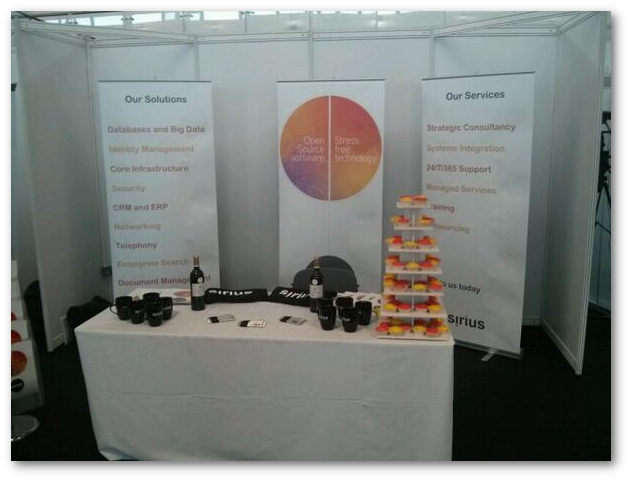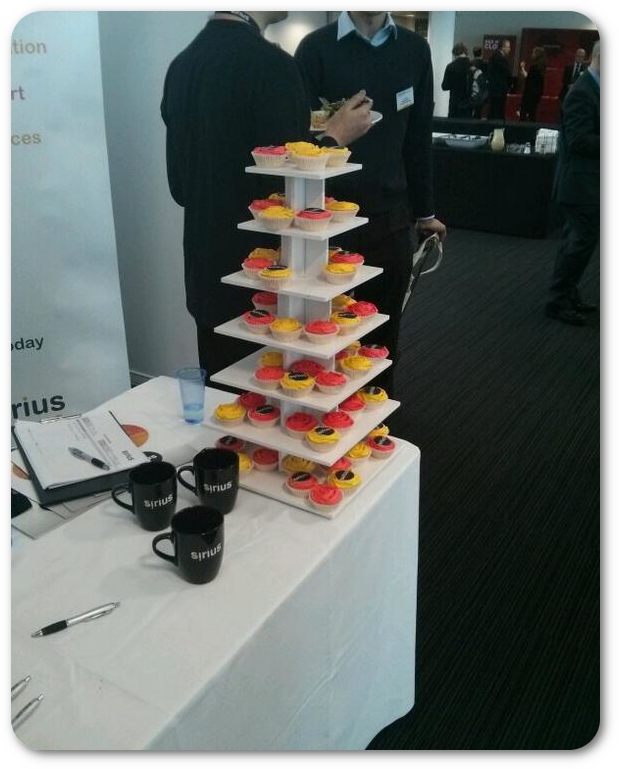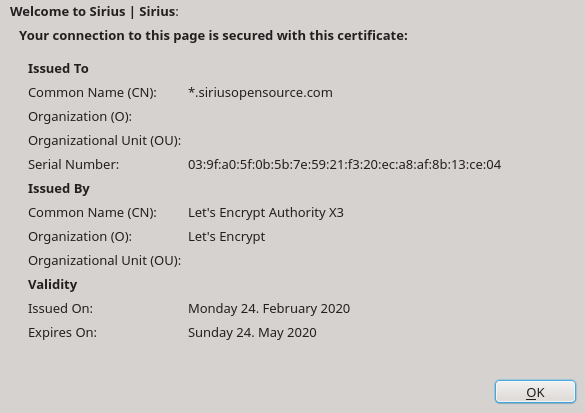Sirius ‘Open Source’ Managers Sitting on Their Hands While Moaning About Workers
Summary: Following this morning’s example of lying to clients at Sirius ‘Open Source’ let’s examine how the daytime team, i.e. self-appointed “management”, fails to deliver work which was promised (Sirius promised a project months ago, but nothing got done) and ‘low-level’ staff took the brunt; are managers doing anything at all? What are they doing all day long? Pretending to be busy? Collecting their salaries? Pushing around people who work all night long and actually possess technical skills?
As shown yesterday (or around midnight), managers at Sirius are directing staff to lie to clients and sometimes also lie to the staff. This is a highly toxic workplace climate. It compels good people to abandon good principles. Meanwhile, the ‘bosses’ are not — or barely — responding to E-mails (clients’, staff E-mails…), not doing basic accounting properly (not paying pensions sometimes!), so what on Earth do they even do all day long? Are they testing the position of their chairs?
Based on company meetings (2022) and public disclosures from the same year one can imagine the situation is rather dire; these show that there’s barely any money in the bank (we’ll show evidence at a later point in the series).
It’s hard to know what exactly happens behind the scenes (no transparency), but there’s maybe a ‘race condition’ against clients’ payments (revenue and salaries for staff). While almost understandable, this means that the company starts doing potentially illegal things when it comes to finance (we’ve mentioned stuff like a lack of payslips).
There are many other dodgy aspects we’ll explain at a later point, e.g. nepotism and contract-signing at ‘gunpoint’ (the concept will be properly explained some other day).
Nighttime staff at Sirius is working hard for a very small salary. It’s only reasonable to expect management to do the same. Moreover, meeting clients’ deadlines or expectations is rather fundamental (the previous parts mentioned SLAs).
In reality, however, everything is reversed; those who are failing at their jobs try to finger-point elsewhere and outwards. They aren’t subjected to any inside or outside scrutiny (e.g. for failing to attract good clients). To hide their incompetence they resort to spying, dirt-digging, and misdirection of blame, in essence improvising with the “law” and basically flinging lots of crap, hoping something might stick to an anti-adhesive frying pan. Last month we decided that “enough is enough” and below is one example among many more that exist. It shows how a project (not the nighttime staff’s) wasn’t being delivered for a very long time.
More Examples of Poor Service Delivery
More recently, there were more incidents of vastly delayed responses. Management received escalations but took no action. Rianne was covering the daytime shift when this (heavily-redacted) ticket was reported (note dates):
June 30, 2022
- Ticket#1013535 — RE: ?????????????????
Ticket acknowledged, escalated to ????????????????? because we may need ?????????????????. for this. The certificate, on the other hand, is valid and has not yet expired. Perhaps we can start looking for errors in that idp process log files?
July 17, 2022
Ticket#1013535 — RE: ?????????????????
Emailed ????????????????? regarding the priority of this ticket.
Dear ?????????????????,
This ticket has been open for over two weeks. Support/????????????????? conducted an initial investigation into the reported issue, but we have yet to contact the customer to provide our analysis or recommendations on the matter. When was ????????????????? available to investigate the problem?
July 30, 2022
Ticket#1013535 — RE: ?????????????????
The URL is now working: ?????????????????.
Support has not had the opportunity to update the client (no word other than acknowledging the ticket and conducting some research). I have asked ????????????????? if we can close this ticket quietly.Hello, ?????????????????.
The URL that they reported as broken is now fully operational: ?????????????????.
I’m not sure when this problem was fixed. Support has not had the opportunity to update the client (no word other than acknowledging the ticket and conducting some research). I guess we’ll just close this ticket quietly.
October 16, 2022
Ticket#1013535 — RE: ?????????????????
????????????????? – is working for me without connecting to the VPN. Same result as what ????????????????? was getting.
As far as Rianne can remember, she brought this ticket to ?????????????????’s attention on Slack on that day (June 30th), but as usual ????????????????? is a very busy man and ????????????????? is not a big client, so it’s not of high priority. One can easily notice how long this ticket remained open/unattended/unnoticed for. This went on for so long (until October). As far as one can tell (based on what’s last known), this is still an outstanding ticket. It was open until the very last day Rianne was working in Sirius.
Finally, below is one more incident that shows one client that got truly pissed off. There are many redactions, but if scrutiny arises or one of those implicated are interested, we’ve got the full conversation. It’s meticulously documented for support.
The short story is, Sirius promised a project and didn’t deliver it, so the client began to chase Sirius. This is an example where a client has no idea who really works in Sirius e.g. in-house or associates (the Web site misleads about who actually works in Sirius):
Re: [Ticket#1013727] ?????????????????
10/08/2022
Hi ?????????????????,
I hope you are well.
Since our last meeting a month ago, we are already planning and working to update our infrastructure to Ubuntu 22.04LTS and so MySQL servers 8.
In the last few days we recorded performance issues on our master server.
I would like to ask if you can speedup your proposal for your execution and evaluation of MySQLtuner on our master/slave servers as suggested by ?????????????????. We must maintain our systems stable and reliable until the migration to MySQL8. (estimated by end of this months). Moreover, will give us the opportunity to setup the new servers with the right parameters.
Best regards
?????????????????
06/09/2022
Hi ?????????????????, ????????????????? and ?????????????????,
I think we have a very bad [this word was highligted and bold in the actual message] case of an important piece of work becoming urgent. We have had 5 database issues that have caused issues and outages in the last 4 weeks, including one yesterday.
My understanding was that in the meeting on 7th July, two months ago, you had agreed to prepare an estimate for running mysqltuner on our system. We are now in a situation where things have become critical and our ability to make system changes based on the results of this work is closing. Any changes need to be specified, developed, and tested and that usually take weeks to perform.
Please can you make arrangements for someone to assist ????????????????? on the the execution and/or analysis of mysqltuner urgently (today or tomorrow)? [highlighted and bold in the actual message...emphasizing the urgency.]
Thanks,
?????????????????
Hi ?????????????????,
????????????????? and ????????????????? have both escalated the urgency of this issue and many apologies that we haven’t addressed this faster.
We will of course support the urgent work on this mini-project and will just let any paperwork catch-up. ????????????????? is available.
?????????????????, could you please confirm your availability the rest of this afternoon and tomorrow from 2pm and we will find something that fits?
Many thanks,
?????????????????09/09/2022
?????????????????, we would like to run that process in stage first – but we do not seem to have access
Can anyone on Sirius call me on the phone, please?
I cannot be helpful in this way.
?????????????????
Hi ?????????????????,
As below, ????????????????? is going to run this now and attach the output as soon as finished. Would you still like someone to call you?
We can do that now if you’d still like a call.
Thanks,
?????????????????
Hi ?????????????????,
it was no longer necessary when ????????????????? confirmed that you were able to access to the system and run the command requested. I have been very confused when ????????????????? said ” – but we do not seem to have access -”
Many thanks to ?????????????????.
Best regards
?????????????????
Hi all,
what exactly the problem is? You should have access to ?????????????????.
?????????????????
This is a very recent example. The client said: “My understanding was that in the meeting on 7th July, two months ago, you had agreed to prepare an estimate for running mysqltuner on our system.”
More than two months later there’s no progress.






 Filed under:
Filed under: 




